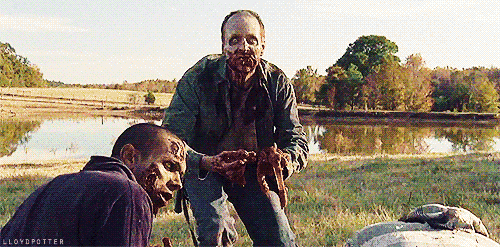Zombie Apocalypse
I’ve always imagined the world ending with zombies eating us all alive and dominating the Earth. Not that I’m wishing that kind of apocalypse to happen in this lifetime, but because I may have watched too much of The Walking Dead, World War Z and Train to Busan.
However, we cannot rule out the possibility of a zombie pandemic outbreak marking our doomsday.
We only need one crazy scientist or engineer to develop a specie that thrives on human meat and propagates its kind through viral infection.
When that day comes, at least we now know that only less than 300 people from around the world will make it on the first one hundred days of the zombie domination.
This has been estimated by physics students from the University of Leicester.
Perhaps thrilled about the feasibility of a zombie pandemic outbreak, these students investigated the spread of hypothetical zombie virus using a model called SIR.
The results showed that there will only be 273 remaining human survivors, outnumbered a million to one by zombies.
It is concluded on the premise of a zombie finding one person each day with a 90% chance of infecting the victims through the virus.
But how did they arrive to that number exactly?
The SIR model is an epidemiological model that computes the theoretical number of people infected with a contagious illness in a closed population over time.
Samples of the population in this case were split by the SIR model into three categories: S (the susceptible population), Z (the zombie population) and D (the dead population).
After, it factored the rates at which infections spread and die off as individuals in the population come into contact with each other.
The student researchers have considered the time frame over which individuals in the population encounter one another, and initially deemed the natural birth and death rates as negligible given the hypothetical epidemic taking place over a hundred days only.

If global populations were equally distributed in less than a year and provided that humans don’t fight back against the zombies, the study suggests it will be the end of the world for us humans.
But that conclusion didn’t consider other critical factors such as the rate in which zombies might be killed, people having children within the nightmare scenario, and how less likely the human survivors will be infected after having experience of avoiding or fending off zombies.
When those are included in a later study, it was found that we could survive a zombie apocalypse after all. The team found that the zombie population would eventually be wiped out and the human population would recover. That should be good news for us.

One would wonder how such creative situations ended up in a university journal with a technical evaluation.
Dr Mervyn Roy, a lecturer and course tutor in the University of Leicester’s Department of Physics and Astronomy, explains, “Every year we ask students to write short papers for the Journal of Physics Special Topics.
It lets the students show off their creative side and apply some of physics they know to the weird, the wonderful, or the everyday.”

Source: Phys.org














